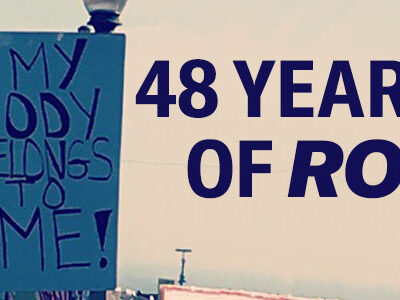News & Commentary
Redistricting In Ohio: Top 4 Things You Should Know
Be ready to be prepared for THE political showdown of 2021!
By Collin Marozzi

Being Anti-Racist Means Fighting Against Anti-Asian Violence, Too
Make no mistake, anti-Asian sentiments have long been ingrained within the systems of the United States in their own ways.
By Sarah Khan-Williamson

School Resource Officers Exacerbate the School-To-Prison Pipeline for Students of Color
Our fight for racial justice doesn’t stop at the figurative “schoolhouse gate.” The school-to-prison pipeline is yet another way that Black and Brown bodies are funneled into negative interactions with law enforcement at a young age.
By Elena Thompson

Senate Bill 25 - Opponent Testimony
SB 25 is a bill to increase felony drug trafficking penalties by one degree if the trafficking took place "in the vicinity" of numerous locations, including, but not limited to, drug and alcohol treatment.
By Gary Daniels

Pandemic Or Not, Ohioans Deserve Virtual Testimony
One must question – is this truly a democracy? Is the Statehouse not also the peoples’ house?
By Sarah Khan-Williamson

A Conversation with Repro Rights Expert Professor Jessie Hill on the Future of Abortion
We sat down with our Cooperating Attorney and nationally recognized reproductive rights expert, Jessie Hill, to discuss the state of abortion and reproductive rights in Ohio and the U.S.
By Sarah Khan-Williamson

2020 Was A Lot. This Is Why We’re Hyped For 2021.
The ACLU of Ohio staff, board, and volunteers are nowhere near putting our feet up in 2021
By Sarah Khan-Williamson

Ohio Lawmakers Again Take Lameduck Session Hostage by Prioritizing Anti-Abortion Agenda Above All
The close of the 133rd Ohio General Assembly (OGA) is rapidly approaching. We are in the final stretch of lame duck, a time between the general election and the end of the year when a new legislative session starts. Ohio legislators hurry to wrap up whatever unfinished business they have from the past two years. Mindful of the ticking clock, lawmakers try to push priority bills across the finish line. They also use the rushed process to introduce new, and often extreme, legislation in hopes that it will pass in the midst of the commotion. For that, lame duck is always chaotic. This year is no exception. And in addition to the typical lame duck legislative shenanigans, we are in a global pandemic and Senate and House leadership refuse to allow virtual testimony in any committees at the Ohio Statehouse! This is of course frustrating because it limits access to the hearing process, but more importantly it’s an incredibly irresponsible and dangerous decision as the number of positive cases within the walls of the Statehouse continues to rise.

What’s Going On with the Cleveland Consent Decree?
It’s been over five years since the city of Cleveland entered into a settlement agreement with the (DOJ, mandating that Cleveland make specific, compressive reforms to its police department. Yet, here we are at the end of 2020, and there is still much work to be done.

Stay Informed
Sign up to be the first to hear about how to take action.
By completing this form, I agree to receive occasional emails per the terms of the ACLU’s privacy statement.
By completing this form, I agree to receive occasional emails per the terms of the ACLU’s privacy statement.
